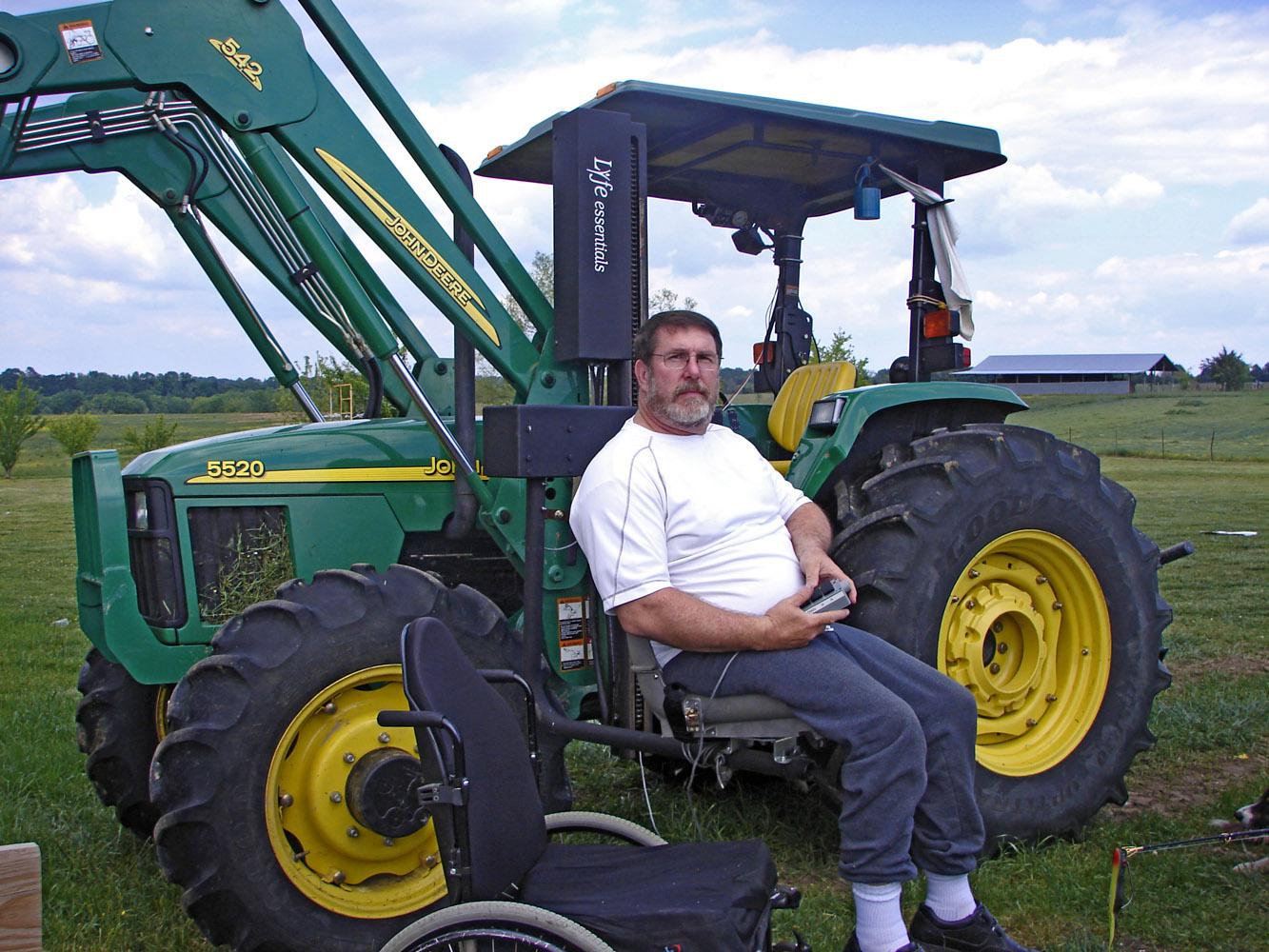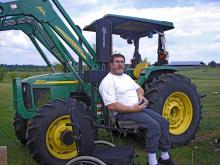Information Possibly Outdated
The information presented on this page was originally released on May 24, 2007. It may not be outdated, but please search our site for more current information. If you plan to quote or reference this information in a publication, please check with the Extension specialist or author before proceeding.
AgrAbility helps a farmer stay on farm
MISSISSIPPI STATE -- Chris Bell of Newton County is the latest Mississippian with a disability to benefit from a program designed to maintain agricultural lifestyles despite a life-altering event.
Bell, 57, of Lawrence, is a cattle farmer who uses a wheelchair, the result of a 2005 medical procedure that went wrong. He lives alone and with help from his son and friends, runs a 100-head cow/calf operation, raises hay, produces honey, and raises and trains border collies.
The Mississippi AgrAbility Project is a five-way partnership between the Mississippi State University Extension Service, MSU's T.K. Martin Center for Technology and Disability, the Mississippi Department of Rehabilitation Services' Vocational Rehabilitation Division, the Alcorn State University Extension Program and the Methodist Orthotics and Prosthetics Lab.
In January, AgrAbility helped coordinate the people and resources necessary to equip Bell's tractor with a wheelchair lift and to install remote-controlled, solar-powered gate openers on his pasture gates and hand controls on his tractor.
“The lift on the tractor enables me to help rake and bale hay and do the work necessary on the tractor,” Bell said. “It's exhilarating, and it probably helps with my mental attitude and the physical side as well. I can't totally do things by myself, but I can at least participate.”
Before his disability, Bell worked for a company doing fiber optic installation four days a week and farmed the other three days. Now farming is his full-time job. Bell sports a farmer's tan he got working his 250-acre farm from his tractor, but his paralysis limits the amount of time he can spend sitting in his wheelchair.
“What I needed and didn't get was a stand-up wheelchair, but we're working on getting one of those so I can do more than I can sitting in a chair,” Bell said.
Emily Knight, a Mississippi AgrAbility coordinator, said AgrAbility helped link Bell to the people and resources he needed to find the tools that made it possible for him to keep working on the farm.
"We connected him to what was available," Knight said. "AgrAbility put him in touch with a company in Indiana that sells lifts that allow a person in a wheelchair to drive a tractor. The Mississippi Department of Rehabilitation Services purchased some gate openers with solar panels that allow him to open and close his gate without having to get down from the tractor.”
Knight said AgrAbility is an educational program bridging the gap between rehabilitation and agriculture. AgrAbility has served more than 100 people who work in agriculture or live in a rural setting and who face a disability that could make them leave their way of life or occupation.
“We try to help people find the possibilities that exist for somebody who is working in agriculture and who is disabled,” Knight said. “Our goal is to keep them employed or involved in the work they enjoy.”
For more information about the Mississippi AgrAbility Project, contact Knight at (601) 736-8251 or [email protected].



